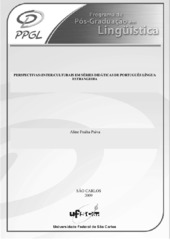Perspectivas (inter)culturais em séries didáticas de português língua estrangeira
Abstract
Among several perspectives of thinking about culture in the area of Portuguese as foreign language teaching, the notion of interculturality notion has been established as an approach which concerns the relationship between cultures in the teaching-learning process. Within this context, it seemed relevant and necessary to conduct an investigation on how the intercultural issue has been approached in textbooks that explicitly indicate the adoption of this perspective. Thus, in this exploratory study, we aim to critically analyze the activities of four teaching series focused on Portuguese as foreign language teaching (Avenida Brasil 1 e 2, Diálogo Brasil e Estação Brasil) which make explicit in their prefaces the adoption of an intercultural approach. Through this analysis, we seek to identify and demonstrate the comprehesion of culture and interculturality presented in these materials, as well as the implications of this understanding in the process of teaching and learning languages. We found that although interculturality is a recurrent discourse in these teaching materials, the results of the examination pointed to a discrepancy between the theoretical assumptions concerning this theme and the proposed activities. We also observed that, in general, the most privileged conceptions of culture (Thompson, 2002) in the teaching series were the descriptive and symbolic ones, pointing, therefore, to the attempt - from the materials developers - to mirror in their work contemporary assumptions of foreign language teaching related to communicative approach.
